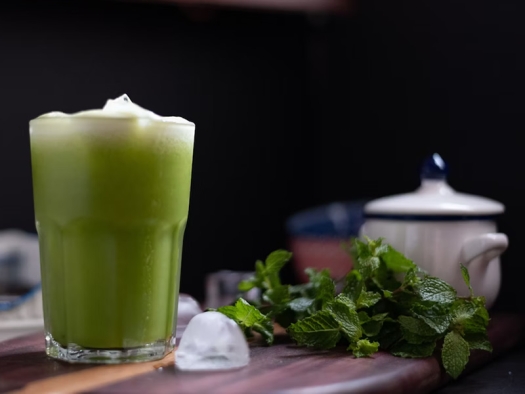GreenSmoothie.jpg

Photo by Luiz Carlos Santi / Unsplash
Misconceptions
There is a lot of misinformation out there so let’s bust some immunity myths:
Myth 1: If I sanitize everything, I won’t get sick.
Aside from the fact that it’s impossible to completely avoid germs, the truth is we need a healthy microbiome for a healthy immune system to keep everything from infections to allergies to inflammation in check.
Myth 2: I need to “boost” my immune system.
Boosting immunity is overly simplified because an overactive immune system can be just as damaging as an underactive immune system—contributing to allergies and autoimmunity.
Myth 3: Vitamin C will keep me healthy.
Sure, vitamin C supports immune function, but it’s not the only nutrient we need. Other key immune nutrients include vitamins A, D, E, selenium, zinc, and protein.
Threats
Following are five things you wish wouldn’t affect your immune system, but DO!
People love to pop their vitamin C this time of year, and I hate to be the bearer of bad news, but Vitamin C isn’t going to do much if your immune system is being squashed by other forces.
Like:
- Stress
- Short Sleep
- Not Exercising
- Staying Indoors
- Sugar Sugar Sugar!!
It’s tempting to look for a miracle pill to keep us healthy, but the truth is that our bodies are complex beings that respond to cues from everywhere. What is the best thing you can do to support your immunity right now?
Look for the weakest link in your health and your habits.
Fix that first.
Gut
70% of your immune system is in your gut. Have you heard this statistic? It’s true.
Of all the immune cells in the human body, 70-80% are located in a place called the GALT, which is lymphatic tissue around the gastrointestinal tract.
These immune cells are trained by the gut microbiome, which means: Healthy Gut Microbiome = Healthy Immune System.
Most people never think about it, but eating in a way that supports the gut microbiome is one of the best ways to support your immune system!! Want some ideas for microbiome-friendly foods?
- Fiber-rich fruits and vegetables
- Probiotic-rich yogurt (plain), kefir, and sauerkraut
- Prebiotic-rich foods like garlic, onions, and bananas
Not everyone does well with these foods, depending on many individual factors. Please do not take this as medical advice. Reach out for specific guidance on how to support your immune and gut health in a personalized way by finding a functional medicine doctor.
Exercise
Exercise and Immune Function: Helpful or Harmful?
Let’s set the record straight. Consistent moderate exercise supports immune function by:
- Increasing circulation (so immune cells can work their surveillance system better)
- Increasing lymphatic flow (lymph will stay stagnant if you don’t move)
- Improving metabolic health (which translates to immune health)
- Lowering inflammation (creating a more balanced immune response)
- Decreasing stress (which can significantly affect immune function)
Lots of people get confused about this because athletes going through prolonged intense training are more susceptible to getting sick. It all comes down to how much you exercise and how hard. The science shows that exercising at a moderate to vigorous intensity for about 60 minutes per day gives the biggest immune benefits.
What’s your plan for getting moving?
Immune Tips for the Holidays
The holidays come with their fair share of gatherings, sugar, and stress, all challenging our immune systems a bit more than at other times of year! For immune support, consider:
- Daily Movement – Moving your body gets your circulation and lymphatics flowing, relieves stress, and decreases your susceptibility to falling sick.
- Probiotic-Rich Foods – Remember that 70% of your immune cells are in your gut! Probiotic-rich foods (think yogurt, kefir, kombucha, and sauerkraut) support the gut microbiome.
- Vitamin C-Rich Foods – Oranges, grapefruits, broccoli, and bell peppers are excellent sources of vitamin C as well as other antioxidants to support immune health.
- Immune-Supportive Supplements – Consider taking a multivitamin or some extra nutrients like vitamin D or zinc through the cold and flu season.
- Sleep – One of the best things you can do for your immune system is to give your body time to rest and restore!
There are no guarantees when it comes to staying healthy through the winter months, but there are always ways to support your body’s resilience.
Adaptogens
Here is an immune hack most people never try. Ever noticed that you’re more likely to get sick when you’re burning the candle at both ends and pushing the limits of your stress? That’s because stress triggers cortisol.
While cortisol suppresses inflammation in the short term, over time it weakens the immune system to be less effective at fighting off invaders.
That’s where adaptogens come in!
Adaptogens are herbs that strengthen the body’s resilience on many levels, from stress to hormones to immune function.
You may have heard of:
- Tulsi (Holy Basil)
- Ashwagandha
- Rhodiola
- Reishi
Sometimes adaptogens can interact with medications or health conditions, so please consult with a practitioner knowledgeable about herbs before taking supplements or even teas.
Sugar Swaps
Sugar can be a difficult habit to break. It can be helpful to have options as sugar swaps for immune health! Here’s my take on sugar and immunity.
Science shows that elevated blood sugar weakens our ability to fight off infections.
Foods that spike the blood sugar are things like soda, candy, cookies, and sweets – all the treats people love to eat at the holidays!
Here are some sugar swaps to try:
- Sparkling water instead of soda
- Dark chocolate instead of candy bars
- Coconut clusters instead of cookies
- Chia pudding instead of ice cream
You might even fall in love with some new and healthier treats you’ve never tried before.
Immune Smoothies
Save this post! I’m loving these immune smoothies.
Just toss the following ingredients into a blender and you’ve got a beverage that will make your immune cells happy.
- 1 cup Leafy Greens – Spinach and kale are packed with antioxidants and beta carotene (the plant world’s precursor to vitamin A)—plus fiber and very few calories.
- 1 cup Frozen Fruits – Even during the winter months, you can get frozen pineapples, mangoes, or berries for a boost of vitamin C.
- 1 cup Greek Yogurt or Kefir – Fermented foods are teeming with probiotics to support the gut microbiome and immunity. These foods also add protein to the mix.
- 2 Tbsp Seeds – Hemp seeds, chia seeds, sesame seeds, and ground flax seeds provide essential omega-3 fats.
- Water or Almond Milk – Top it off with as much liquid as you need to get a sippable smoothie.
One of my favorite combos is to use spinach, mangoes, yogurt, chia seeds, and almond milk. If I’m feeling fancy, I add a splash of vanilla and cinnamon.
References
Wiertsema SP, van Bergenhenegouwen J, Garssen J, Knippels LMJ. The Interplay between the Gut Microbiome and the Immune System in the Context of Infectious Diseases throughout Life and the Role of Nutrition in Optimizing Treatment Strategies. Nutrients. 2021;13(3):886.
Nieman DC, Wentz LM. The compelling link between physical activity and the body's defense system. J Sport Health Sci. 2019;8(3):201-217.
Revised by Joanne Quinn, PhD; content provided by Wellnesswriter.com


